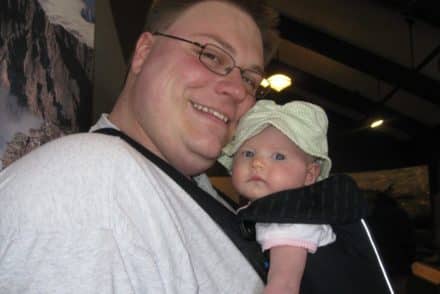By Joe Jiminez
I watched a video: men’d hurled bodies onto a freeway.
In front of my television I paused, unthinkingly—
Bodies. Asphalt. Sky—.
México. This is where my mother is from—.
With my eyes, I listened. For something often comes when we shut down frenzy and instinct and let the body be a body—.
A body is a form, a physique, anatomy, skeleton, a soma.
A body is a torso and hair, main parts, heart and nerves, tendons and toes.
At my computer screen, I paused. I was watching it again—the bodies in México thrown onto pavement. The frame, and I gawked at the bodies’ dismal shapes, a geometry all at once unfamiliar and wonted because pixels.
Killed men strewn across a dark road… Eons ago, the land also suffered so many insufferable deaths.
A living room shrine dedicated to a woman named Rosa Diana Suárez: white party dress, photographs, wall-painted ivy, a tiger in a tree. Offerings of chicken and chewing gum, and her father made this in memory of her—.
“impunity is the main motive of the gender[ed] crime…”
Don’t you remember?
Land and specie and dominance—how is this not the same?
Thole—. That is the syllable for it.
How it means to tolerate, so distinct from allowances. Or the slim permissions we make to seek some horror and not ourselves be eaten with it. “to endure something without complaint or resistance; to be afflicted and to suffer—.”
We thole. You thole. I thole.
This comes from Ireland’s North. They tole. For they, too, know the geometric din of dead laying in the streets.
Who among us cannot whistle a fire of suffering—?
Who among us has shut off his lungs—?
Hear of a body, and does it sound the same as when it was alive and you knew nothing of it at all?
A body is cadaver, carcass, remains—.
I sit at my table and I drink the hard bottled water from México that I love.
I sit at my desk and watch—.
Men hung from a freeway overpass, moving back and forth. Undulating. Is that the right word? Is there such a thing? A right word for this—?
Feminicidio. 340+ women and girls murdered in the deserts of Ciudad Juárez. “the misogynist murder of women and girls by men.”
I walk to the kitchen and think of their bodies. I think of their feet, the shoes and the belts and the hair on their legs and arms and the things they never did with their lives.
I lay in bed and consider those men—.
I sit in my tub and contemplate those women—.
Letting the body be means I don’t know what comes or how. I can’t always say I am fine with this. I can’t say I am fine with shadows I do not know are shadows. The surrendering, the yielding. To forgo ego means to not think—.
These images hold sway: the gasping onlookers, the bystanders’ eyes sinking down upon themselves, into their shoes, into the pavement and asphalt and wind. Disparaged slugs: eye sockets, something like prostration or rage.
Thole—.
Haunting is the wrong word. Obsessing is inaccurate. Beleaguer will not achieve what happens in the muscles I wear.
But why don’t I stop thinking, who don’t I drop every hot thing I hold and rush myself to these front lines? What might I accomplish? and How might México not need us—?
Coahuila, México, is where my birth-grandmother still lives. but After a falling out with my mother, we haven’t spoken in more than a decade.
I do not miss her.
I do not yearn for her tortillas and caldos, her songs or her cariños. Ours was not a relationship of that nature. The years she would visit, we would drive to Laredo from the small town outside Corpus Christi where we lived, and we would sit at the bus station in Nuevo Laredo, the city of my mother’s first birth, and wait for my grandmother to exit one of the buses arriving from México’s interior. Each visit was a silence, a bout of intrigue and watching, of curiosity and a sadness like the kind that fills a bowl under one’s bed, which you place there, near your head, filled with water, so that your nightmares, as my Buela instructed me, are absorbed.
I still sleep with water by my bed—.
I am a 38 year-old man who still suffers from nightmares; my lover will tell you they’re loud.
I am a 38 year-old man who still stutters from guilt.
Pesadilla. That is the Mexican word she showed me for dreams that cause suffering.
Once, my grandmother told me that our dogs eat better than they do—. In México. You here eat like kings, she added.
I looked at my mother’s dog rubbing his wet snout in his kibble, and I looked at my Buela, and I wanted to hold her thumbs, hook them into my body, give her every cent I had saved for when I moved away to college, but when I went to look for her in the kitchen, after sitting, for a few minutes, with this thought blunting my head, I found her small spade of a hand digging through my mother’s purse—.
At the end of each visit, my birth-grandmother would begin the stories of suffering. How difficult life was in Coahuila—. A litany of hindrances, hardships. Illnesses, thefts, hungers—. At the end of each story, my mother would scrape together whatever money she had and then she would turn to each of us—my sister, my brother, me—enjoin us to do the same.
Some days I convince myself no one needs us. What are we, conscious Americans—the great saviors? or Is this convenience and complacency, disregard gorging my consciousness—? more importantly, who is “we”—?
The falsity of soundbites, the tweets that hammer reality, the raucous of first-world posts about hankering for justice, liturgies for the iris that observes too much horror, asking the questions, drinking the fluids—.
How much is too much horror for anyone to witness? Do the eyes ever consume enough and say, Freeze?
Someone should develop a rubric for halting suffering—I say.
I say a great many things in the dusk-hued husk that is my insides inside my heart.
I say, because I have known suffering.
Can I say it: American suffering. American suffering is not like suffering for others in the world—?
I say it, because Another time bodies were hung from an overpass. They swung in wind like syllables unwilling to fully leave the mouth, tethered and dangling and dangerously true—.
Again, this time, alone in my house, at my table, I pause the monitor’s blue skin and ask Time to articulate the sadness that wasn’t entirely hatred but more like dubiety and certainly spleen.
Yes, anger. Yes, immensely.
Yes, thole—.
And yet, I wondered what happened to those damp twisted ropes, the cut cords from which these men were strung down like obsolete fruits at the furthermost parts of grey trees or vines.
In a magazine, I read once that an artist in México made jewelry from the shattered parts of vehicles caught in gunfire: windows, some twisted metal as bangles, necklaces, other trinkets.
Yes, something akin to outrage—.
Something akin to earth magic.
But also the anatomy of anger at seeing: as if anger were an organ contributing to the creation and extraction of cells in my blood.
That spleen. Anger as a form of immunity? Anger as a shield on which to shelve one’s rage. None that counts—.
Powerlessness to stop an atrocity is powerlessness to live on.
So their families? Yes, I wondered. These women and men and their mothers, their wives and fathers and lovers and siblings and children.
Who they were, and how—? and Could this ever have been me?
And what if these were my own people being taken and burned alive and hung?
and “my own people”—how can that mean?
My own quotas for what I can endure on television or the LA Times, on progressive friends’ newsfeeds, YouTube, and MotherJones, would detonate if my own family suffered these abductions, one of our own bodies swaying above morning mist and stunned traffic lights, wheels leaving their terrible shrieks on the tarmac—both effigy or curse and the swaying frame like a logic no lung will fully enunciate.
It happens because none of us can imagine it happening to we—.
As hex, as postulate, the body suspended above the rest of us as exemplar and foretoken.
Admonition. Prevented from being, or continuing. Harbinger, or the reminder that what will occur next if…
I want to believe in suspension as a prorogue—.
A dispersal throughout a sea of thought.
An interruption without dissolution. but What else is there, what else is there that any of us can do—?
a) the viewer
b) the viewed
c) the mourning
d) the spirit of los desaperecidos
Most days, I do not know what to do with my grief.
I’d like to think that a bird sings not because she has a song but because she has an answer. Angelou said this—.
but I do not have any answers, and does this mean I cannot be a bird?
Most days, I fathom a box I might put the rage in, a lid and a click and what I learned from both Anzaldúa and Keats—.
but What good are boxes but purposeful in building straight sonnets or burying our dead—?
43 students killed on their way to a protest—but killed isn’t the word. but Is there another word for Iguala, for a student whose face was skinned, his eyes gouged out—?
43
43
43
The UN tells us: “only 1-2% of the 102,696 homicides that took place in Mexico between December 2006 and November 2012 were investigated to conviction. Of those homicides, an estimated 70% were in some way drug related.”
but Why would the 43 matter specially? and What about the rest of the world—?
but Why would any 1—?
I want to believe in an answer.
I want to believe I matter. A signal of doing something more than just posting great reads regarding violence against people whom others, too often, see not as people.
Hundreds of thousands of people are dying in México, Black Churches are burning in America, and I want to believe in Heaven.
To believe in the necessity of disruption: I make copies of articles on Ayotzinapa for high school English Lit. students to read and guide them in how to compose a kick-ass argument in response to the 43 when we should have been reading about the Luddite riots, which are important to know, how automated looms took people’s livelihoods away, took food out of their families’ mouths, how the people destroyed these new, mechanized looms, and this was resistance, and this meant the Parliament considered a law that said, If you destroy a loom, you die. Laborsaving? the Frame Breaking and Malicious Damage Acts. Working class discontent—but 1811 is not 2015, but México is not inner city San Antonio is not Yorkshire or Nottinghamshire.
I want to believe my students are more important than Lord Byron.
I want to believe Juan Diego is still alive.
and “I wonder what your idea of heaven would be.” In a letter Hemingway once asked this of Fitzgerald. O, what is more American than Hemingway and Fitzgerald and imagining heaven—?
heaven.
Heaven—.
HEaven?
HEAVEN.
Heaven…
…heaven!
Hemingway got to imagine heaven. So did Fitzgerald. I make myself do it. This is America. In Hemingway’s 1954 Nobel Prize acceptance speech, he says of writing: “For a true writer each book should be a new beginning where he tries again for something that is beyond attainment. He should always try for something that has never been done or that others have tried and failed.” He says with luck, sometimes, one might succeed.
102,696
102,696
340+
(.015)102,696 = despair (or 1.540.44)
43/0 = 0
340/102,696 = crisis, forgotten, ignored
but It’s not like I can conjure some great miracle from a hillside. It’s as if we have run out of roses, and no one among us is wearing a mantel—
Or, I could run out in the streets or the countryside or the monstrous haciendas wielding a machete or a flamethrower, a satchel of prayers and poems, and what, then? and What, when I have a bullet lodged in the back of my head or am disappeared—?
December 2012, all of 2013, all of 2014, 2015—
Whereas many bodies are never recovered, cut up into so many little monoliths that they aren’t bodies any longer, or can they still be, when the amputated arm is in one part of the country, collecting worms or suitcased at the bottom of a rubbish bin, and the foot, covered by sofas and tarpaulin shreds in a landfill of tires on the other side of the littlest world, the molecules altered, as has happened—
then, I also think that something inveterate happened inside the people who did this.
Is it enough saying not everyone can be courageous? Is it enough to admit that silence has saved someone’s life?
And why am I ashamed that I know this?
What we do with our guilt is our own transaction—.
Some days I say, Fuck my American guilt. Other days, I say, It is not enough to just feel guilty. and It is a frightening thought to admit that my comforts are built on the backs of others, that I have because someone else has not—.
I feel guilty because I don’t have an answer to end anyone’s suffering, not even my own.
and I feel a pogrom of guilt wondering if the culprits are people still—?
Why shouldn’t I dehumanize them?
If their fault is irremediable.
If they can enact such misery upon another body, whole families, nations—.
And can’t they, too, be unreal?
I hate them.
I hate them because God won’t halt this, and I know how I’ve prayed—.
I hate them with a brutality that wishes upon each predator a fate much like the ones they’ve enacted upon the daughters and sons, the brothers and sisters, on the hillsides and in the rivers, in the landfills, buried in cements or tossed onto freeways like hubrises no one ever wants after they’d given their days.
And what exactly are those purposes? And what is mine—?
And how long can we last—?
Joe Jiménez is the author of The Possibilities of Mud (Kórima 2014) and Brightest Noise (Arte Público 2016). Jiménez holds an MFA in Creative Writing from Antioch University Los Angeles and lives in San Antonio with his pit bull, mastiff, two xolo itzcuintlis, and boyfriend. His recent poems can be found in Fourth River, Southern Humanities Review, Codex, and Borderlands Texas Poetry Review. For more, visit joejimenez.net.

Ring in New Years 2016 with Jen Pastiloff at her annual Ojai retreat. It’s magic! It sells out quickly so book early. No yoga experience required. Just be a human being. With a sense of humor. Email barbara@jenniferpastiloff.com with questions or click photo to book. NO yoga experience needed. Just be a human being.

The 12 Day Detox is here. Sign up now for the next cleanse on November 30th. Space is limited. This detox comes at just the perfect time. Reprogram your body and mind as we move into the holiday season. This is your time of rejuvenation and renewal.This is not a juice fast, or a detox based on deprivation.





No Comments